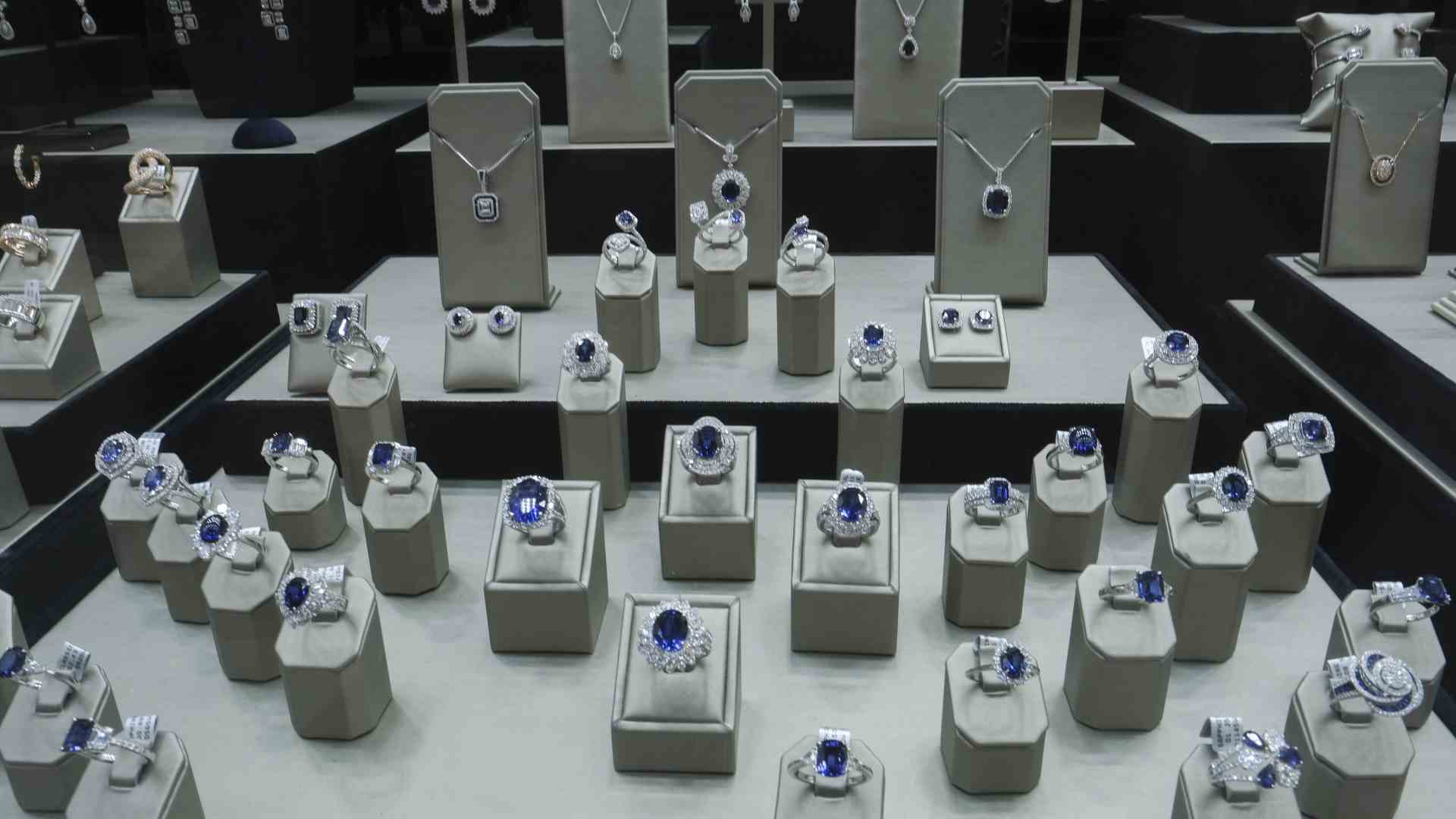Status: 05/16/2022 07:36 a.m
The sale of luxury goods to Russia is sanctioned because of the Ukraine war. But the import of Russian diamonds remains allowed. In Antwerp, the world capital of the diamond trade, one hopes that this will remain the case.
Traders, messengers, tourists – there is a hustle and bustle in the Hoveniersstraat in Antwerp, in the heart of the diamond district. According to its own assessment, the Belgian port metropolis is the cosmopolitan city for trading in precious stones. This is organized in a glass-mirrored building, the Antwerp World Diamond Center (AWDC). “Every day, 190 million euros flow through this building,” says AWDC spokesman Tom Neys. “That’s 36 billion for us alone every year.”
“Peace is much more valuable than the diamonds”
This is no longer a matter of course, at least not to this extent. A quarter of the rough diamonds imported into Antwerp come from Russia. The sale of luxury goods there has been banned since mid-March. But importing the stones is still allowed – unlike in the USA.
In a video message, Ukrainian President Volodymyr Zelenskyy appealed to the Belgian parliament: “Peace is much more valuable than diamonds, than contracts with the Russians, than Russian ships in ports, than Russian oil and gas. That’s why help us. Everyone knows what needs to be done to restore peace in Europe.”
Prime Minister Alexander de Croo says there has never been any opposition to measures relating to diamonds. The measures were developed by the EU Commission. “Your justification is always: The impact on Russia must be much greater than on us,” said de Croo. “Should the Commission say in the coming weeks: We do want to take action in the area of diamonds, then our country would not shut itself off.”
Russian diamonds fill the treasury
Last year, Antwerp imported roughly $1.8 billion worth of Russian rough diamonds. Most came from mines belonging to the Alrosa group, which are located in Yakutia, a republic in the icy north-east of Russia. Managing Director of Alrosa is Sergei Ivanov. His father is considered a confidante of Russian President Vladimir Putin. Board members are also said to have close ties to the Kremlin.
“It’s not ideal, we understand that,” says AWDC spokesman Neys. “Alrosa is around 20 percent owned by the Russian state. So yes, of course there is a certain feeling of involvement. That’s certainly true.”
In concrete terms, this means that Alrosa’s income goes into the Russian treasury and could help finance Putin’s war against Ukraine. But trade association spokesman Neys warns against banning the import of diamonds from Russia to Antwerp. That would not affect Russia at all.
Emigration to Dubai feared
Belgium all the harder for that. “You would immediately send $1.8 billion on a 10-hour flight to Dubai and then the stones would be sold there,” says Neys. “So an import ban would make no difference at all. Only that tens of thousands of jobs would be lost here. And the problem is: They wouldn’t come back.”
It’s about access to raw materials, says Neys. That is geostrategically important. In addition, diamond dealers in Antwerp are subject to strict rules against money laundering and terrorist financing, while Neys says Dubai advertises that nothing applies there.
Global boycott?
They are still trading in Russian rough diamonds in Antwerp’s Hoveniersstraat. Association spokesman Neys is not sure that this will remain the case. “We are open to putting more pressure on Putin. We are the first to say: why not find a way internationally to stop the trade in Russian diamonds worldwide? Maybe that would be a solution,” he says.
If the diamond trade is to be restricted, according to the logic of the industry in Belgium, then at least everywhere. So that neither the Kremlin nor the competition gets anything out of it.
Flawless exception – Belgium’s diamonds and sanctions
Jakob Mayr, ARD Brussels, 16.5.2022 6:50 a.m

